Israel Examined 1,200 Over Leak About Naval Attacks Against Iran

Communications of about 1,200 Israeli military personnel were examined and 10 officials were interrogated over a leak about Israeli strikes on Iranian ships.

Communications of about 1,200 Israeli military personnel were examined and 10 officials were interrogated over a leak about Israeli strikes on Iranian ships.
At the time it was revealed that since 2019 Israel had targeted at least 12 vessels headed to Syria that were mostly carrying Iranian oil.
"Following this, a security investigation was immediately opened to locate the source of the leak and whether it originated in the IDF," quoted the Israeli Defense Forces spokesperson as saying on Wednesday.
The spokesperson added that "About a year ago, it was reported that information about a military operation in an enemy state had been leaked to foreign media before the operation was carried out."
The IDF stated that no indications of the source of the leak were found during the security investigation, adding that only about 450 of over 1,200 personnel, who were exposed to the secrets about the operations, had signed a confidentiality agreement.
Moreover, the Mossad said that an unknown amount of other people from other agencies and organizations had also been exposed to the information.
For over a decade Israel has carried out attacks on the Iranian atomic program including killing scientist and drone strikes. Israel has also acknowledged that it has conducted hundreds of attacks against forces under Iranian command in Syria to prevent the Islamic Republic from accumulating weapons and entrenching itself further in the war-torn country.
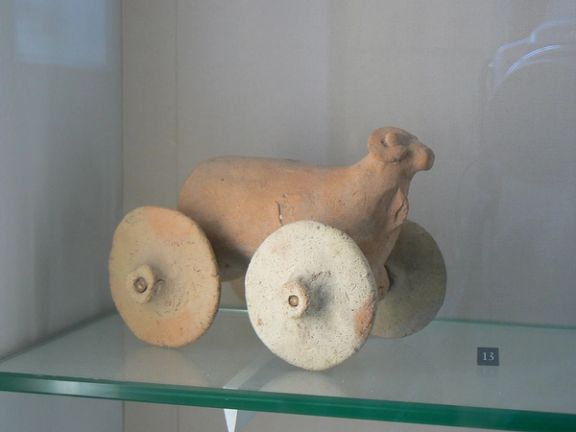
Iranian archeologists object to a plan in parliament to legalize private archeological excavation and trade in ancient artifacts and antiques.
In an open letter to Parliament Speaker Mohammad-Bagher Ghalibaf Wednesday, sixty-one archeology professors expressed deep concern over a motion, entitled "Optimum Use of Ancient Artifacts and Treasures", and demanded it to be shelved.
The motion has not officially been presented on the parliament floor yet but a copy of it has circulated in the media.
Archeologists said the planned was prepared without any consultations with expert organizations such as the Research Institute of Cultural Heritage and Tourism, the Society of Iranian Archeologists, or the Archeology Taskforce of the Ministry of Science and is in contradiction to several existing laws which regulate archeological excavation and trade in items of historical value.
The proposal also reinforces public perceptions that Islamic Republic officials are corrupt and take advantage of national wealth to enrich themselves.
The 46 lawmakers behind the motion, argue that legalizing trade in historical artifacts which will stop illegal trade and smuggling, could help Iran turn into a "regional hub of trade," and bring hard currency income to the country.
In their letter, archeologists strongly objected to selling the historical wealth of the country to procure income. Privatizing excavation and legalizing trade will also deprive the country's own museums, which will not be able to compete with private buyers, and deprive then of any future findings, they said.
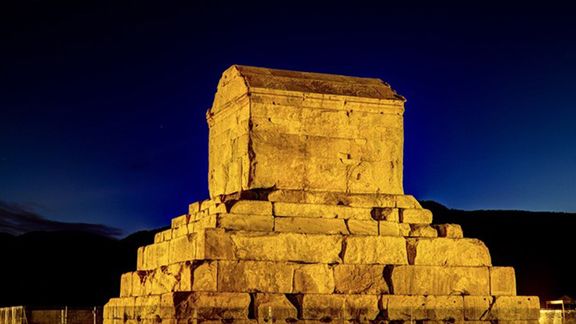
Moreover, approval of the motion could result in inexperienced excavators damaging archeological sites and their contents as well as lack of proper reporting of information related to the excavation sites and other related information which are of great significance to historians and archeologists.
Iran has numerous prehistoric and ancient sites many of which are still unexplored. Some of these sites, such as the paleolithic Ghogha Golan in the foothills of the Zagros mountains in the west of the country date back to as far back as 10,000 years.
Massive collections of ancient Persian artifacts excavated by foreign archeologists before the twentieth century adorn many top museums in the world such as the Louvre in Paris, the British Museum in London, the University of Chicago's Oriental Institute Museum, and the State Hermitage Museum in Saint Petersburg, Russia.
Hamid Baghaei, Chief of the Cultural Heritage Organization and a close confidante of former President Mahmoud Ahmadinejad in 2010 sought to legalize trade in historical artifacts and antiques and establish an international exchange on Kish Island in the Persian Gulf. The plan raised much objection and was eventually discarded.
On Wednesday, Hossein Jalali, one of the lawmakers who put his signature on the motion, told Entekhab news website that he has realized that critics are right, and the motion is faulty. One of the provisions in the proposed law may result in numerous excavations and the removal of excavated artifacts from the country, he said.
According to current laws, excavation for historical artifacts and transferring them outside Iranian borders without approval of the authorities are illegal and punishable by cash fines and prison. Any accidental findings, during construction for instance, must be handed over to the Cultural Heritage Organization.
Although trade in ancient artifacts is illegal, many such items find their way to markets including online platforms. A year ago, the cultural heritage organization prevented the sale of an ancient drinking vessel (rhyton) on Divar, an online auction and shopping platform in Iran similar to eBay but many other artifacts of various historical age and value are still traded on online platforms.
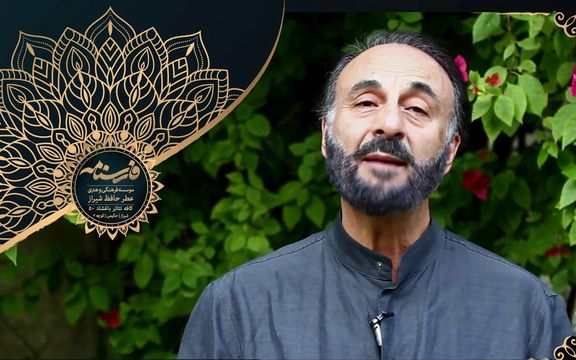
Dr. Kazem Mousavi, a human rights activist in Germany says victim families of Iranian political prisoners mass-murdered in Iran in 1988, demand the ouster of an Oberlin College professor.
--------------------------------------------------------------------------------------------------------------------------
Opinion - On May 12, 2020, the Iranians of Berlin, like other compatriots in various cities in the United States and Europe, intend to take part in a demonstration against the presence of Mohammad Jafar Mahallati, professor of Islam and peace studies at the Oberlin College. Mahallati is the former ambassador of the Islamic Republic of Iran to the United Nations, representing the Iranian government during the massacre of political prisoners in the summer of 1988. While at the UN, Mahallati called the massacre a lie and "political propaganda against the Islamic Republic." In addition, his statements against the Baháʼí Faith and Baha'is of Iranat the United Nations in the early 1980s and his relentless defense of the Islamic Republic's anti-Israel doctrine and policies, its support for Hamas, and its encouragement of students to propagate the BDS campaign (The Boycott, Divestment, Sanction of Israel) further highlight the specific role of this key player of the Iranian government.
Despite the protests of the victims' families and disapproval of the Iranians about the presence of a justifier of a massacre, who had a specific governmental responsibility during the bloodbath of 1988, the University of Oberlin and its president refuse to offer any specific response and even ignore the request to meet the families of the victims of the 1988 Massacre.
It is very disappointing that the authorities of Oberlin College, a role model of culture and art in the United States, support the agent of an anti-cultural Islamic regime that suppresses and executes dissident Iranian artists, writers, and scientists or forces them into exile. Also, Mahallati was representing a regime that has repeatedly held Holocaust cartoon festivals in denial of this historic crime against humanity, and the university administration must condemn these acts.
When the case of Mahallati was brought to attention by the "Justice for Mahallati Victims" campaign in the United States, and the freedom-loving Iranians protested his employment at Oberlin, this story attracted the attention of the Iranian community on the Internet. Some have called the university too liberal, and some called it too conservative.
Oberlin College is one of the oldest universities in the United States and has a unique history. The university was founded in 1833 in Oberlin, Ohio. In 1835, the university officially changed its policy, enrolling a black man as a student for the first time in the United States. The university also awarded a woman a bachelor's degree in 1841, which was unprecedented. From the outset, the University of Oberlin shifted its political stance toward the abolition of slavery and opposition to other racist laws.
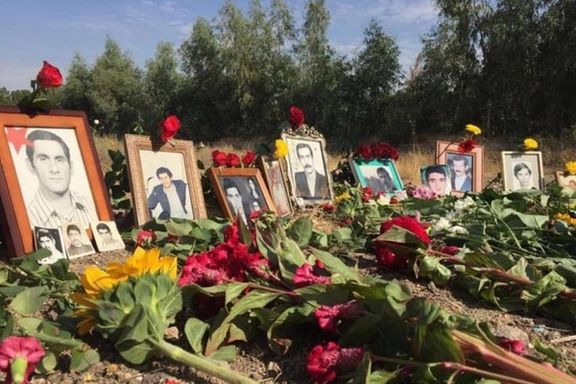
The policies of the Oberlin College have always been a point of contention between liberals and conservatives in the United States for more than 170 years. After the election of former US President Donald Trump, the controversy over the socio-political aspects of this college escalated significantly. During Trump's presidency, the far-right media practically portrayed the college as a producer of " Social Justice Warrior", a hint to the university's radical liberal views, and on the other hand, students with leftist and sometimes extremist views challenged the ideas and actions of conservatives with their social activities in the urban space.
This confrontation between the two groups and perspectives, especially in the tense period of the presidency of Donald Trump, given the position of Ohio State and its importance as one of the determining states in the presidential election, intensified to the extent that the Oberlin College became the center of events and this even caused problems in the city. The Gibson Bakery incident, in which a black student fought with the white son of the owner, made headlines in local, state, and even national media. The white son of the owner of the Gibson Bakery chased a black student for stealing two bottles of wine, and the court's case escalated to the point where the social supporters of both sides practically used it for electoral and political purposes.
In addition to the contentious issues between the two campaigns, such as racism, the arrival of immigrants in general, and Latin American immigrants in particular, Islamophobia is one of the issues on which the two sides have always had a dispute over it. To intimidate voters and advance their aims, extremist right-wingers in the United States use the issue of immigrants, especially crimes committed by ISIS or the Iranian clerical rulers, to sensitize society to a danger that is not so real in American society (in comparison with Europe). On the other hand, left-wing radicals go so far that they even downplay the Islamist's crimes in Iran and in the Middle East.
The Islamic Republic's lobby in Washington has always taken advantage of the conflict between these two political poles to whitewash the faces of criminals such as Mahallati, Hossein Mousavian, and Khamenei's fundamentalist representative, Mohammad Ali Elahi, the head of the Iranian Regime's Islamic mosque in Chicago.
The history of NIAC, which is recognized by Iranians living in the United States as the lobby of the Islamic Republic, confirms this tactic of the regime. NIAC's use of left-wing, anti-war groups such as the Code Pink is one example of these tactics. The Iranian government's lobby in the United States has even taken many activists of these left-wing and anti-war groups to Iran by launching travel tours and even publishing their books.
Now, regarding these points, it is noticeable that most Iranians living in the United States, whose main enemy is the Islamic Republic, are inclined toward the right and, sometimes regardless of the consequences of actions and statements by rightist groups, take their side.
Therefore, liberal figures and activists who have a particularly influential position in the management of prestigious universities, seeing the right-wing supporters in Iranian campaigns, are no longer even willing to listen and examine the explanations of the opponents of the Islamic Republic. With their reactionary and one-sided approach, they ignore credible evidence of crimes committed by Iranian government agents who have penetrated their educational institutions. This negligence of universities' liberal officials is pushing Iranians, who have only the support of the far-right media, further to the right, and this vicious circle practically leads to the ineffectiveness of the activities and campaigns of the freedom-loving Iranians. The main winner, of course, is the Islamic Republic and to some extent, the far right, which, takes advantage of sympathies among Iranians to show that liberals don’t care about human rights violation in Iran.
Therefore, in the gathering which takes place in Berlin on May 12, 2022, we will ask highlight the request of the family members of the victims of the 1988 massacre to meet with the President of the Oberlin College, Mrs. Carmen Twillie Ambar.
The opinions expressed by the author are not necessarily the views of Iran International
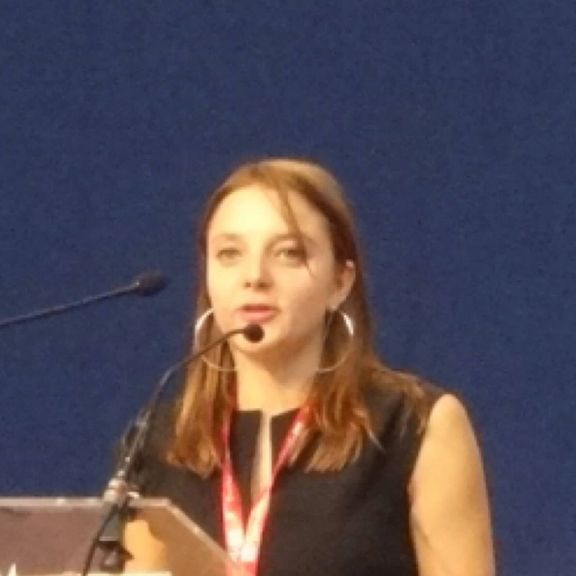
The two European nationals arrested in Iran were identified as Cécile Kohler, the head of the biggest federations of teachers' unions in France and her husband, Iran International has learned.
Iran's Intelligence Ministry announced the detention of two European nationals on Wednesday without providing any details about their nationality or how and when they were arrested.
Kohler is the head of the National Federation of Education, Culture and Vocational Training – known by their French abbreviation FNEC FP-FO – that is a trade union representing education and related staff in France.
According to information received by Iran International, Kohler and her husband, who is also a member of the FNEC FP-FO, traveled to Iran as tourists and not on behalf of the organization.
They arrived in Tehran's Imam Khomeini Airport on April 29 and stayed in Tehran for two days, and then went to Kashan and Esfahan. The couple were returning to Paris on May 8 when they were arrested.
Their trip to Iran coincided with intensification of Iran’s crackdown on teachers’ protests and union activists over their latest round of widespread rallies which were held on May 1, the international Labor Day.
Considering the activities of the FNEC FP-FO, the couple fits the bill for the scenarios Islamic Republic uses as pretext to arrest foreign nationals.
The Iranian Intelligence Ministry alleged in its statement on Wednesday that the two met with members of the Coordination Council of Iranian Teachers’ Trade Associations, which has been the organizer of several rounds of nationwide protests since last year.
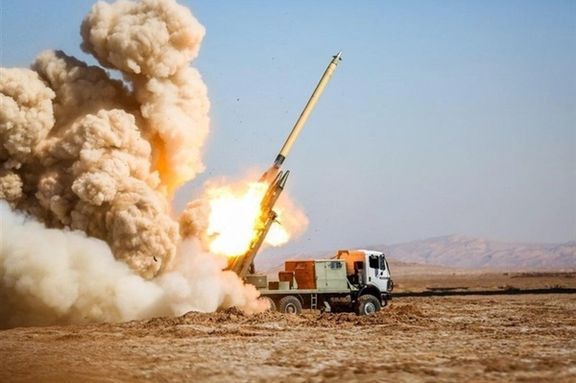
Iran's Revolutionary Guard (IRGC) has launched artillery attacks against Erbil, the capital of Iraqi Kurdistan, claiming it targeted “the strongholds of terrorist groups”.
Tasnim news agency, affiliated to the IRGC, reported the attack on Wednesday, saying no details are available so far about possible fatalities and damages in the strike.
According to local Kurdistan officials, the artillery attack hit Barbazin heights, while four suicide drones also targeted Similan heights this morning.
In March, Iran fired missiles at Erbil. No one was killed but missiles did damage to some residential buildings. Iran claimed it used 12 ballistic missiles in that attack and targeted an Israeli intelligence center. At the time it was seen as a response to an Israeli airstrike in Syria that had killed two IRGC officers or to an suspected Israeli attack in February on a drone base at an airfield in western Iran.
The attacks on Erbil have taken place at a time when Tehran is demanding the removal of the iRGC from a US list of terrorist organizations amid stalled nuclear talks.
An exclusive Reuters Report said days later that the purpose of the missile strike might have been meant to derail a gas pipeline project to pump Kurdish gas to Turkey and Europe. A claim that was denied by Nour News, which is close to the secretary of Iran's Supreme National Security Council (SNSC), Ali Shamkhani.
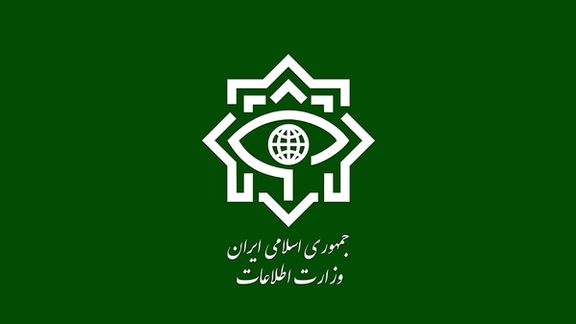
Iran’s Ministry of Intelligence has announced the arrest of two European individuals for promoting unrest and instigating chaos in the Islamic Republic.
The public relations office of the ministry said in a statement on Wednesday that the two Europeans, who had entered the country with the aim of provoking public outrage through changing the direction of normal popular demands into chaos, social disorder and destabilization of society, were identified and arrested by the intelligence forces.
The statement by the ministry did not provide any details about their nationality or how and when they were arrested, but apparently, they came from the same country.
It added that the two main elements of the mission -- organized by intelligence agencies -- were experts in the field of riot and instability and have experience in training their local agents in several countries over the years.
The statement also mentioned the Coordination Council of Iranian Teachers’ Trade Associations as one of the circles with whom the two had held meetings. The council has been the organizer of several rounds of nationwide protests since last year, prompting speculations that the announcement can be a measure to link teachers’ protests to foreign intelligence agencies to justify the heavy-handed crackdown.
The timing of the announcement also suggests that it can also be an attempt to exert pressure on European countries over the case of a former officials who is facing a court verduct in Sweden.
On Tuesday, a Belgian court also dismissed appeals by three accomplices of an Iranian diplomat who was convicted of plotting to bomb an opposition rally in France in 2018.